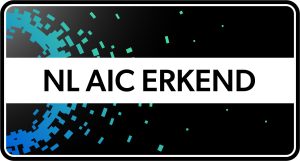What social challenges in AI are being worked on?
Not being able to read well, which often negatively affects many aspects of a person’s life – try writing a job application letter if your literacy level is low, for instance, or reading the package leaflet of a medicine or filling in an official form. This explains immediately why relatively many people with poor literacy skills are unemployed, have health problems and miss out on benefits and other financial help.
Although the government allocates a lot of money to this social problem and there are plenty of assistance programmes for the people affected, it is proving very difficult to reach this target group, largely because people with poor literacy skills feel ashamed and are reluctant to sign up for an assistance programme. On top of that, many of them are very creative in coming up with ways to disguise the fact that they cannot read and write so well. As a result, the current approach is not working sufficiently well, meaning that low literacy is still a major social problem.
What types of solutions are offered to the end user?
Human centric artificial intelligence (AI) can play a role in addressing low literacy in various ways, but the main focus is on developing a conversational user interface. Such a system can play a key role in determining someone’s linguistic level and therefore in determining how poor their literacy level is. That system can then be used to help less literate people improve their literacy and numeracy skills. An AI application such as this can tailor the level and pace of the lessons while also responding quickly to the preferences of the user, who will therefore get practice texts that better suit their own personal interests. That makes the learning process a lot more enjoyable, which in turn helps achieve the desired results more quickly.
What AI methods or techniques are used in the research?
Speech technology, natural language processing, machine learning and AI recommender systems play important roles in creating the desired conversational user interface. The lab is using Design Thinking methods in the development process. Stakeholders test the solutions they have developed in relevant real-life situations before taking them up to the next level through successive improvement cycles. Besides developing a conversational user interface, the ELSA Lab will also investigate the potential for deploying social robots. These can, for example, assess someone’s language level when that person answers questions. A key point to focus on here is what is needed for making sure that users trust that AI technology enough to really achieve valuable human-robot interactions.
Are we collaborating with other sectors?
In addition to IT specialists for the design and development of AI applications, this ELSA Lab also includes participants working in education, public administration, media and communication, and health and welfare. There are a lot of aspects to tackling low literacy, so it is important to pool a wide range of expertise to increase the chances of success.
What is the ultimate success this ELSA Lab can achieve?
If AI-based accessible technology becomes available in a few years’ time to serve people with low literacy levels and assist them in everyday life. This should then be a human centric AI solution that those with poor literacy and numeracy skills feel comfortable and safe using on a day-to-day basis – AI that helps them learn to read, write and do sums: skills they can then use to improve their way of life. In short: an AI application that will make life a lot easier for a large number of Dutch people.
Awarded the NL AIC Label

The Netherlands AI Coalition has developed the NL AIC Label to underline its vision for the development and application of AI in the Netherlands. An NL AIC Label formally recognises an activity that is in line with the aims and strategic goals of the NL AIC and/or the quality of that activity. NL AIC would like to congratulate the ELSA Lab for an AI Approach to Low Literacy.
More information?
Please contact Dr Hans Marien, who is affiliated to Utrecht University and is the general coordinator of the ELSA Lab for an AI Approach to Low Literacy. If you would like more information about human centric AI and the ELSA concept, please go to this page.







